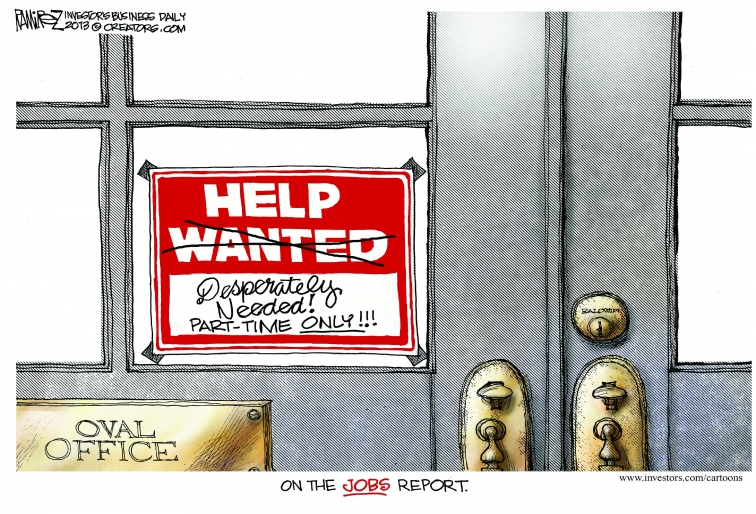Last week, the Federal Communications Commission (FCC) approved a pair of sequential purchases: (1) Sprint’s purchase of the remainder of Clearwire’s spectrum, and (2) the Japanese company SoftBank’s purchase of Sprint. So far, so good.
Here’s the problem. Those interrelated transactions presented the FCC with a perfect opportunity to reform the so-called “spectrum screen,” a tool that measures spectrum available for wireless use in order to ensure competition in the wireless market. Unfortunately, the FCC failed to make any reform whatsoever to that spectrum screen framework, which will only serve to create even more regulatory uncertainty and discourage critical wireless infrastructure investment.
The screen framework has been, and can continue to be, a useful tool for assessing competitive effects of spectrum. But until that framework is brought up-to-date to reflect all spectrum available and useable for mobile wireless services, the tool remains outmoded and flawed, effectively artificially picking winners and losers.
With the FCC’s inaction last week, a 2008 decision (the last time the FCC visited the spectrum screen issue) continues to guide spectrum aggregation policy. In that decision, the FCC chose to ignore the bulk of Clearwire’s 2.5 GHz spectrum, counting only 55.5 MHz of it toward the screen. By not revisiting the spectrum screen when it green-lighted last week’s transactions, the FCC continued to discount a large portion of spectrum available for wireless use. It’s difficult to understand their rationale.
Sprint continues to advocate for its own interests, insisting that only one-third of its Clearwire spectrum should be included in the spectrum screen. Sprint bought the remainder of Clearwire’s spectrum to pave the way for the SoftBank deal, to leverage the value of Clearwire’s network and to optimize Clearwire’s spectrum. So while the FCC chooses not to tally all of Clearwire’s available BRS/EBS spectrum, SoftBank gained rights to the 2.5 GHz band. In contrast, when AT&T previously acquired WCS licenses at 2.3 GHz, the FCC found that the spectrum was usable for mobile wireless services and made changes to the screen.
Curiously, the FCC’s order last week maintained that the three-way deal was not the appropriate vehicle for reviewing the spectrum screen because, from the Commission’s point of view, no spectrum was being swapped. SoftBank, however, owns no U.S. airwaves. Moreover, the FCC had previously ascribed Clearwire’s spectrum to Sprint. Thus, the FCC oddly seems to believe that such an exchange of spectrum is not a transfer.
The FCC’s position not to adjust the spectrum screen in the recent transfer of spectrum to a Japanese owned company is disturbing, especially given that it is currently considering imposing—on an ad hoc basis—a spectrum screen on America’s two largest domestic wireless companies in the upcoming spectrum auction.
The spectrum screen, used properly and applied in a competitively neutral manner, can be a useful tool to protect competition in the wireless marketplace. But the FCC should stop trying to exploit it to pick “winners and losers” in the marketplace. Instead, the FCC should update its existing screen to ensure that it incorporates all available spectrum suitable for mobile wireless services. Only then will it provide the market with the business certainty necessary to advance further infrastructure investment and wireless innovation.


 In an interview with CFIF, investigative journalist and filmmaker James O’Keefe, founder of Project Veritas, discusses his latest book, “
In an interview with CFIF, investigative journalist and filmmaker James O’Keefe, founder of Project Veritas, discusses his latest book, “
 In an interview with CFIF, William Yeatman, Assistant Director at the Competitive Enterprise Institute’s Center for Energy and Environment, discusses the Obama Administration’s climate agenda, its all-out war on coal, the Keystone Pipeline project and the EPA’s assault on state sovereignty.
In an interview with CFIF, William Yeatman, Assistant Director at the Competitive Enterprise Institute’s Center for Energy and Environment, discusses the Obama Administration’s climate agenda, its all-out war on coal, the Keystone Pipeline project and the EPA’s assault on state sovereignty.
 In an interview with CFIF, Megan Brown, Partner at Wiley Rein LLP in Washington, D.C., discusses the U.S. Supreme Court’s latest term, some of the Court’s key cases and decisions, and a sneak peek at the next term.
In an interview with CFIF, Megan Brown, Partner at Wiley Rein LLP in Washington, D.C., discusses the U.S. Supreme Court’s latest term, some of the Court’s key cases and decisions, and a sneak peek at the next term. CFIF Freedom Line Blog RSS Feed
CFIF Freedom Line Blog RSS Feed CFIF on Twitter
CFIF on Twitter CFIF on YouTube
CFIF on YouTube